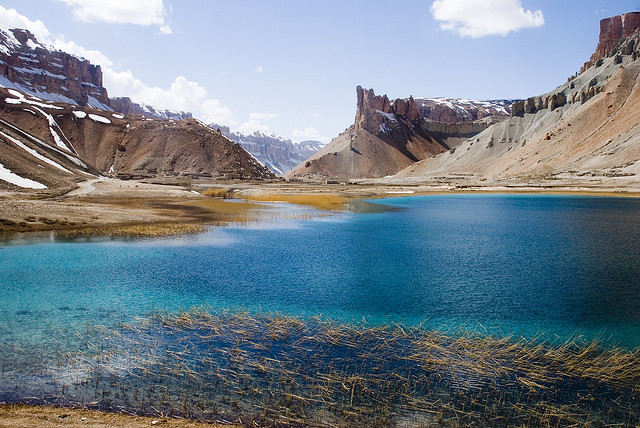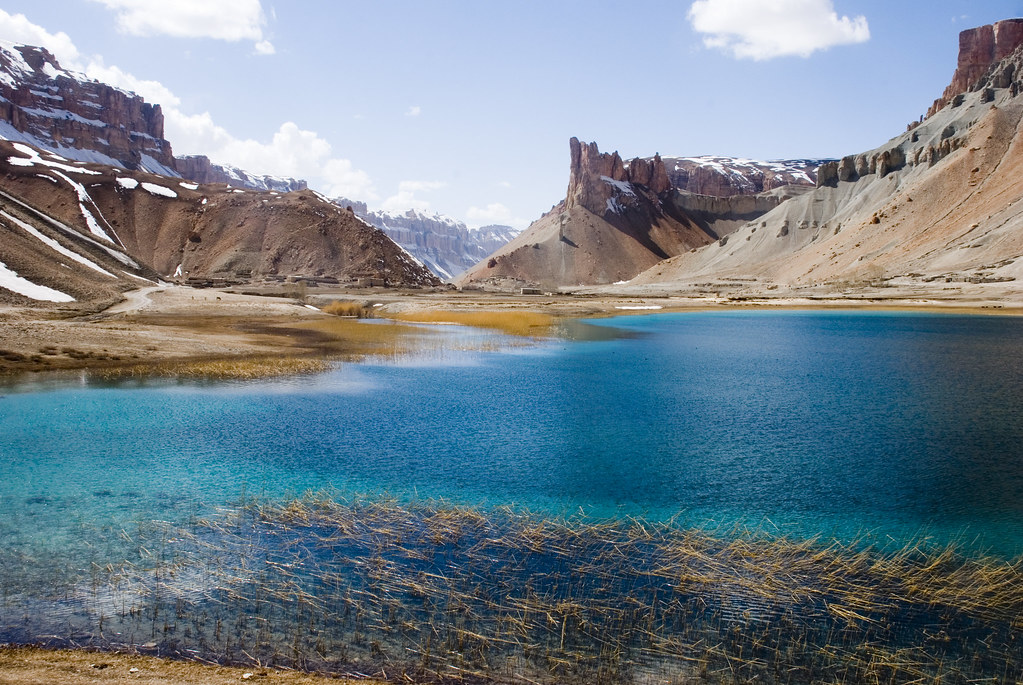Photo by Afghanistan Matters /CC BY
Organizations like Skateistan are extremely important to the future of Afghanistan on a social and even economic level. However, many Afghan people still struggle with some basic needs, such as regular access to potable drinking water. One of the most overlooked casualties of continual war is the infrastructure that once delivered services to people throughout the country. At present, only about a quarter of Afghan people have access to potable water. In rural areas, this figure drops down to about 20 percent. Clean water is a major concern because it is linked directly to health. With steadier access to more reliable source of water, people would get sick less often and have better source of care when they became sick.
Luckily, a wide number of charitable organizations have turned their attention to the need for clean water in recent years. Afghanaid, for example, has launched an integrated program focusing on water, sanitation, and hygiene. This organization works primarily in the northern provinces of Afghanistan, where many communities depend largely on collecting rainwater to meet their hydration needs. In the dry season, however, people must often turn to contaminated sources of water and risk their lives to stay alive. The Afghanaid Water, Sanitation, and Hygiene (WaSH) project involves the construction of new water reservoirs and the rehabilitation of existing infrastructure. The organization also installs bio-sand filters to clean water at individual homes and conducts water quality tests to ensure that water reserves are safe.
Some organizations, understanding the challenges faced by Afghan women, have sought to develop programs that address the role of women in providing clean water. For example, women in Badghis, a province in western Afghanistan, would formerly walk up to four kilometers daily to collect food for their families. Often, they had no choice but to bring back brackish or potentially contaminated water. The United Nations Development Programme (UNDP) stepped in to change this reality by encouraging women to take part in local government and have their voices and concerns be heard. Heartened by the organization, local women pushed for the construction of new wells and water reservoirs closer to their families. Over the years, UNDP has sparked 217 water supply projects in the province of Badghis and undertaken 612 projects throughout all of Afghanistan. Like Skateistan, UNDP seeks to empower women to give back to the community and forge a better life for the people around them.
Afghan Care Today, Afghan Poverty Relief, and American Friendship Foundation are some of the other organizations involved in improving access to clean water in Afghanistan. Since 2008, Deutsche Gesellschaft für Internationale Zusammenarbeit (GIZ) has also been working on a project that directly involves the Afghan Ministry of Urban Development Affairs, the Afghan Ministry of Energy and Water, and Afghan Urban Water Supply and Sewerage Corporation. Taking a more systemic approach, this project identifies affordable ways of developing city- and town-wide sanitation and water systems and then explores means of developing an infrastructure that ensures their continued operation. The project receives a great deal of funding from KfW Development Bank, who will continue to drive the project until 2018. While the program focuses on the construction of new resources, training for Afghan personnel is also a major goal. Between 2011 and 2013, the organization trained thousands of government employees.
With a goal of sustainability, GIZ helped introduce a water tariff in Kabul, Kunduz, and Herat that increased payment for municipal water usage and allowed the government to build six new wastewater plants. The project has generated profits since 2008, which has allowed it to expand to a number of new communities. Because of GIZ, about 75 percent of people living in Kunduz have access to clean water and about 10,000 more households in Kabul are connected to clean water sources. Municipal water is also available to nearly everyone living in Herat and about 30 percent of the population in nearby suburbs.
The Bayat Foundation has also made water a key pillar of its approach to philanthropy in Afghanistan. Over the years, the foundation has spearheaded projects in some of the country’s neediest areas. For example, the foundation paid for the construction of new water wells in the 1st, 3rd, 5th, 6th, 7th, 12th, and 15th Districts of Kabul. The new well in the 3rd District is located directly next to Said Ismail Balkhi High School to serve the needs of students who may become distracted from studies due to thirst. Outside of Kabul, the Bayat Foundation has funded projects in several other areas, including Herat City and Herat Province, as well as Parwan Province and Qala e Shahda in Kabul Province. Other sites include Jalalabad, Saeghan, Qalae Barqe Village, and Mulla Ghulam in Bamyan. Like many of the other organizations, the Bayat Foundation sees clean water as a priority intimately tied to its focus on the needs of women and children in Afghanistan. With reliable access to potable water, the health of everyone, and especially young children, improves dramatically.


